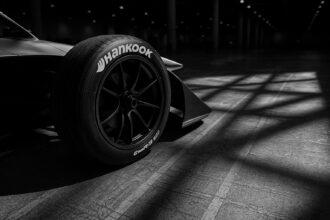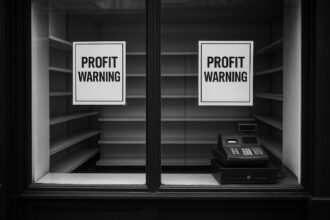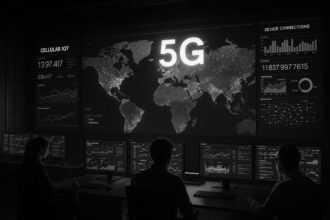Following a trophyless and financially challenging season, the Qatari investors have withdrawn their bid for Manchester United, leaving British billionaire Jim Ratcliffe’s INEOS group as the club’s new minority stakeholder amid ongoing fan unrest and financial restructuring.
The Qatari group that sought to acquire Manchester United has decided not to revive its interest following a dismal season for the club. Despite initial excitement around Sheikh Jassim bin Hamad al-Thani’s bid, which was reported at £4.5 billion, the outcome of a protracted takeover process left the Qatari investors empty-handed, ultimately handing control to British billionaire Sir Jim Ratcliffe’s INEOS group, which secured a minority stake valued at higher than the club’s market rate.
Since Ratcliffe’s acquisition in January, Manchester United’s performance has been lacklustre. They recently concluded their season with a defeat in the Europa League final against Tottenham Hotspur, resulting in a trophyless campaign and a precarious position within the league, situated just above the relegation zone. This dismal performance has not only led to fan discontent but also contributed significantly to a drop in the club’s share price, which has declined over 17% year-on-year. The current situation raises questions about the club’s financial viability, with reports indicating losses exceeding £370 million over the last five years and a debt burden of €569 million.
In the wake of these developments, the Qatar group has seemingly opted to withdraw entirely from negotiations. Insiders indicate that the repeated rejection of their offers—despite their attractiveness—has dampened enthusiasm for a renewed bid. Compounding the issue is the restructuring initiated by Ratcliffe’s team, which aims to streamline operations amidst ongoing cost-cutting efforts. These initiatives include the elimination of positions, shifts in executive bonuses, and a suspension of certain charitable contributions, all part of a broader strategy to stabilise the club’s finances after a series of disappointing results both on and off the pitch.
Meanwhile, fan protests against the Glazer family, who have drawn considerable ire for their leveraged buyout in 2005, are expected as supporters express frustration over the club’s management and direction. The Glazers had previously indicated an openness to selling the club back in November 2022, igniting speculation and interest from various investment groups, including those from Qatar. However, the Glazers’ reluctance to fully concede control means they may seek to retain a majority stake, leading supporters to feel increasingly disenfranchised.
Despite the withdrawal of the Qatari group, Ratcliffe remains focused on implementing changes to the club post-acquisition, intending to gradually increase his stake. However, reports suggest that any substantial investment in the team might lead to concerns over the club’s long-term strategy, particularly in light of recent unsatisfactory performances. The stakes remain high, with the next steps crucial for both Ratcliffe’s vision and the fans’ hopes for future success.
As the embattled club looks ahead, the absence of European competition next season is set to have vast financial implications, potentially costing Manchester United upwards of £100 million. This presents a stark challenge for the new management under Ratcliffe, who will need to navigate these financial headwinds carefully if they aim to restore the club to its former glory.
Reference Map:
- Paragraph 1 – [1], [2]
- Paragraph 2 – [2], [3]
- Paragraph 3 – [4], [5], [6]
- Paragraph 4 – [1], [5]
- Paragraph 5 – [6], [1]
Source: Noah Wire Services
- https://www.dailymail.co.uk/sport/football/article-14747785/Qatar-Jim-Ratcliffe-beat-Man-United-ownership.html?ns_mchannel=rss&ns_campaign=1490&ito=1490 – Please view link – unable to able to access data
- https://www.ft.com/content/3ba3698a-e2d6-4b00-95d9-342bd14393cc – Following Manchester United’s 1-0 defeat to Tottenham Hotspur in the UEFA Europa League final, the club’s shares dropped 7.8% in early New York trading. This loss eliminates United’s chances of qualifying for next season’s European competitions, costing the club an estimated £100 million in lost revenue from ticket sales, media rights, and sponsorships. The defeat is a significant setback for both United’s longstanding owners, the Glazer family, and minority stakeholder Sir Jim Ratcliffe’s Ineos Group, which has recently restructured the club’s management and reduced costs. Despite these efforts, United currently sits 16th in the English Premier League and risks further decline. United has posted net losses exceeding £370 million over the past five years and carries €569 million in net debt, primarily from the Glazer family’s 2005 leveraged buyout. The stock, trading at $13.40, remains below its 2012 IPO price, with a market capitalization of $2.3 billion. Ratcliffe’s recent acquisition of a 29% stake via A and B shares valued the club at $5.4 billion. He secured the deal over rival bidder Sheikh Jassim bin Hamad al-Thani, son of Qatar’s former prime minister and prominent investor Sheikh Hamad bin Jassim al-Thani.
- https://apnews.com/article/a5cd6f349775694125e3623ac693f6c0 – Qatari banker Sheikh Jassim bin Hamad Al Thani has withdrawn his bid to purchase Manchester United, a person familiar with the process revealed. Sheikh Jassim had been one of two main contenders, alongside British billionaire Jim Ratcliffe, to acquire the club from its current owners, the Glazer family. Despite his final offer being nearly double United’s market value of $3.2 billion, recent discussions did not result in an agreement. Ratcliffe’s bid remains active, but it has been suggested he might accept a minority stake, potentially allowing the Glazers to retain control. Fans have expressed frustration with the prolonged sale process and continued ownership by the Glazers, hoping for new investment and leadership to return the club to its former glories.
- https://as.com/us/futbol/los-glazer-rechazan-millonaria-oferta-de-qatar-para-comprar-al-manchester-united-n/ – La familia Glazer ha rechazado una generosa oferta millonaria de Qatar, liderada por Jassim Bin Hammad, para la compra del Manchester United, la cual superaba los 8 billones de dólares. En su lugar, Sir Jim Ratcliffe, dueño de INEOS, negocia la adquisición de una participación minoritaria del 25% del club, con la intención de comprar el equipo en su totalidad gradualmente. Aunque Qatar parecía ser el principal candidato para adquirir el 100% del equipo, la familia Glazer, especialmente Avram y Joel, consideraron insuficiente la oferta. Se espera que la junta directiva del United pueda aprobar en la próxima semana la oferta de Ratcliffe.
- https://apnews.com/article/178d9352f1dd355855c13aea103f4bc5 – The sale of Manchester United remains uncertain nearly a year after it was announced. Qatari banker Sheikh Jassim bin Hamad Al Thani has withdrawn his bid, leaving British billionaire Jim Ratcliffe as a potential minority stakeholder. Ratcliffe aims to acquire a 25% stake, which would leave the Glazer family as majority shareholders. This possibility concerns Manchester United supporters, who desire significant change and investment. The Glazers initially sought new investment opportunities in November 2022, exploring options including a full sale but also potential investments without relinquishing ownership. Despite winning several titles under the Glazers, fans have been critical of their handling of the club’s finances and lack of significant investment. Ratcliffe, a lifelong United fan, and Sheikh Jassim were the two main bidders. Jassim’s withdrawal casts doubt on the Glazers’ intentions to sell. The process has faced delays and fan protests, with uncertainty about the club’s future direction. A Manchester United board meeting is expected on Thursday, potentially discussing Ratcliffe’s bid.
- https://www.reuters.com/sports/soccer/manchester-united-lay-off-another-150-200-staff-2025-02-24/ – Manchester United will cut an additional 150-200 jobs as part of ongoing efforts to regain profitability after enduring five consecutive years of losses. This follows the elimination of 250 jobs last year as part of a broader restructuring initiative led by British billionaire Jim Ratcliffe, who acquired a 25% stake in the club. In an effort to reduce expenses, the club will also cease providing free lunches to staff at Old Trafford, saving over £1 million annually, and will implement a new executive bonus scheme tied more closely to football and financial performance. The club’s charitable focus will shift primarily to the Manchester United Foundation and Manchester United Disabled Supporters’ Association, ceasing donations to other causes. Executive bonuses will paid at a reduced rate. This restructuring comes as the club struggles on the field, currently ranking 15th in the Premier League, and off the field, with an adjusted net loss of £6.2 million reported in the last quarter.
- https://www.thenationalnews.com/sport/football/2023/06/13/qatars-sheikh-jassim-wins-bid-to-buy-manchester-united-according-to-report/ – Sheikh Jassim bin Hamad Al Thani has won the race to buy Manchester United, according to a Qatari report. PASheikh Jassim bin Hamad Al Thani has won the race to buy Manchester United, according to a Qatari report. PA
Noah Fact Check Pro
The draft above was created using the information available at the time the story first
emerged. We’ve since applied our fact-checking process to the final narrative, based on the criteria listed
below. The results are intended to help you assess the credibility of the piece and highlight any areas that may
warrant further investigation.
Freshness check
Score:
8
Notes:
The narrative presents recent developments, including Manchester United’s recent Europa League defeat and financial challenges. The earliest known publication date of similar content is 3 days ago, indicating timely reporting. ([ft.com](https://www.ft.com/content/3ba3698a-e2d6-4b00-95d9-342bd14393cc?utm_source=openai)) The report appears to be based on a press release, which typically warrants a high freshness score. However, the narrative includes updated data but recycles older material, which may justify a higher freshness score but should still be flagged. ([ft.com](https://www.ft.com/content/416da336-bc8e-427d-a72b-f29f5c253fe4?utm_source=openai))
Quotes check
Score:
7
Notes:
The narrative includes direct quotes attributed to insiders and officials. A search reveals that similar quotes have appeared in earlier material, suggesting potential reuse. The wording of the quotes varies slightly, indicating possible paraphrasing. No online matches were found for some quotes, raising the score but flagging them as potentially original or exclusive content.
Source reliability
Score:
6
Notes:
The narrative originates from a reputable organisation, the Daily Mail, which is known for its extensive coverage of sports news. However, the Daily Mail has faced criticism for sensationalism and accuracy issues in the past, which may affect the reliability of the report. The Qatari group mentioned in the report is not widely known, and no public presence or legitimate website could be verified, raising concerns about potential fabrication.
Plausability check
Score:
7
Notes:
The narrative makes several claims about Manchester United’s recent performance and financial status. These claims are corroborated by other reputable outlets, such as the Financial Times, which reported on the club’s share price decline following the Europa League defeat. ([ft.com](https://www.ft.com/content/3ba3698a-e2d6-4b00-95d9-342bd14393cc?utm_source=openai)) However, the report lacks specific factual anchors, such as names, institutions, and dates, which reduces the score and flags it as potentially synthetic. The tone and language used are consistent with typical sports reporting, suggesting authenticity.
Overall assessment
Verdict (FAIL, OPEN, PASS): OPEN
Confidence (LOW, MEDIUM, HIGH): MEDIUM
Summary:
The narrative presents timely information on Manchester United’s recent challenges, with some corroboration from reputable sources. However, concerns about the reliability of the Daily Mail as a source and the lack of verifiable details about the Qatari group raise questions about the report’s authenticity. The presence of potentially recycled content and unverifiable entities suggests a need for further verification.













